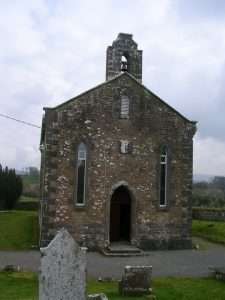“For God so loved the world that he gave his only Son, so that everyone who believes in him may not perish but may have eternal life” John 3:16
Four word beginning with “n” from the Gospel reading can help us in our thinking about what it is saying to us: Nicodemus, night, no-one and not.
Saint John Chapter 3 Verse 1 says, “Now there was a Pharisee named Nicodemus, a leader of the Jews.” Nicodemus is a very religious man, he is a Pharisee. Nicodemus is a man who would have been known for keeping every rule and regulation; Nicodemus is a man who would have taken seriously reading the Scriptures and applying them to every part of his life. Nicodemus is not only religious, Nicodemus is important, he is “a leader of the Jews.” Nicodemus was a member of the Sanhedrin, the Jewish ruling council, he is a man of influence, a man who is respected, a man who would be accustomed to being shown deference by others. Yet, for all that he is, Nicodemus’ life is empty, he can find no peace in following the Law, he can find no meaning in his life in being a prominent and respected citizen. Nicodemus is at the peak of society, but Nicodemus realizes that Jesus is offering something far greater than religion and prominence.
Nicodemus shows us how religion can leave us disappointed; we can keep every rule, every regulation; we can take part in every ceremony and in every ritual; and we can still feel empty on the inside. Nicodemus shows us how respectability and influence can leave us unsatisfied, that now matter how prominent we are and no matter how highly we are regarded, we still feel there is something more. Like Nicodemus, we believe that Jesus is the one who offers us more than religion and respectability.
Verse 2 says, “He came to Jesus by night.” Nicodemus knows he needs to see Jesus, but he does not want anyone else to know. Only after Jesus is crucified do we see Nicodemus openly emerging as a follower of Jesus, Joseph of Arimathea asks for the body of Jesus so that he might bury it, and Saint John Chapter 19 Verse 39 says, “Nicodemus, who had at first come to Jesus by night, also came.” Nicodemus had believed in Jesus, but he had been frightened to confess his faith. Then there comes a point when he must step forward; it was a dangerous thing to do, he and Joseph of Arimathea might have suffered for their actions. Nicodemus’ faith moves from the cover of darkness to the light of day.
Are we like Nicodemus? Do we prefer our Christian faith to be something private, something kept under cover? Have there been times when we have had to be like Nicodemus and step out into the open about what we believe?
“Nicodemus” and “night:” the third “n” is “no-one”. In Verse 2, Nicodemus says, “Rabbi, we know that you are a teacher who has come from God; for no-one can do these signs that you do apart from the presence of God.” Nicodemus has made a long spiritual journey to reach this point where he sees Jesus as unique, he has grown up learning the Law and the Prophets, he has said all the daily prayers, he has attended the synagogue and the Temple and he has met with Jesus and realized that Jesus is unique, there is no-one else like him, no-one else who can do the things that he does. Jesus takes up this idea of uniqueness, he explains there is only one way of reaching the kingdom of God, in Verse 3 he says, “Very truly, I tell you, no-one can see the kingdom of God without being born from above.” Jesus is unambiguous, only those reborn spiritually can see the Kingdom.
“No-one” is a troubling word for us. The belief that there is no-one like Jesus challenges ideas that all beliefs are equal. The belief that no-one can see the Kingdom without being born from above challenges ideas that all that matters is living a “good” life. How do we respond to the conversation? Do we agree with Nicodemus that Jesus is unique? Do we accept Jesus’ words that we must be born from above?
The final “n” is “not.” Saint John Chapter 3 Verse 16 is said to be the most famous verse in the Bible, “For God so loved the world that he gave his only Son, so that everyone who believes in him may not perish but may have eternal life.” The verse is a summary of the whole Gospel story: God loving the world so much that he sends his Son into that world to die and rise again so that everyone who believes in him may have everlasting life. The word “not” is Good News for all who believe, they will not die forever. Nicodemus and the others listening will have been amazed at this thought, that believing in this man who stands in front of them will mean they will live forever. There is a second “not” in Verse 17, “Indeed, God did not send the Son into the world to condemn the world, but in order that the world might be saved through him.” Jesus has not come to them as a terrifying judge, instead he has come as one who offers to save them.
How do we respond to those two words “not”? We are offered the chance not to die, but to live forever? We are offered a God who does not condemn us, but who comes to save us? Standing, there, in Nicodemus’ place, who would we have answered Jesus?
Nicodemus, night, no-one, and not: what is our response to those four words?
